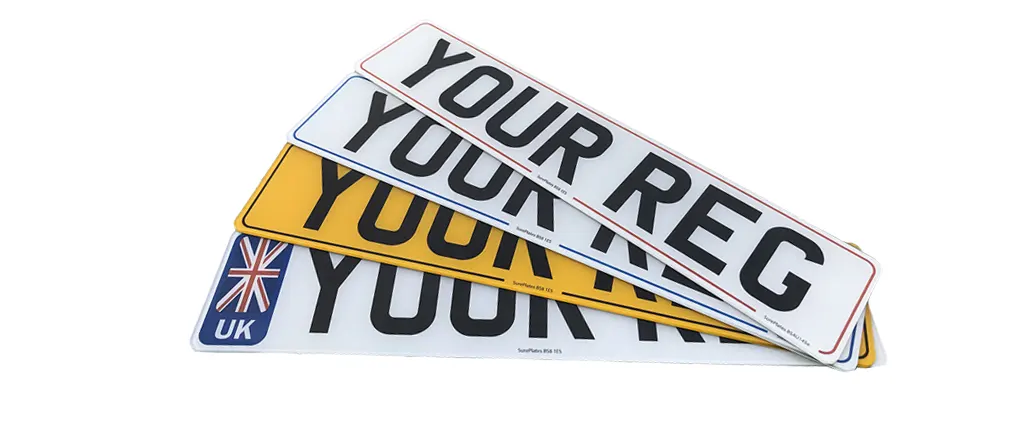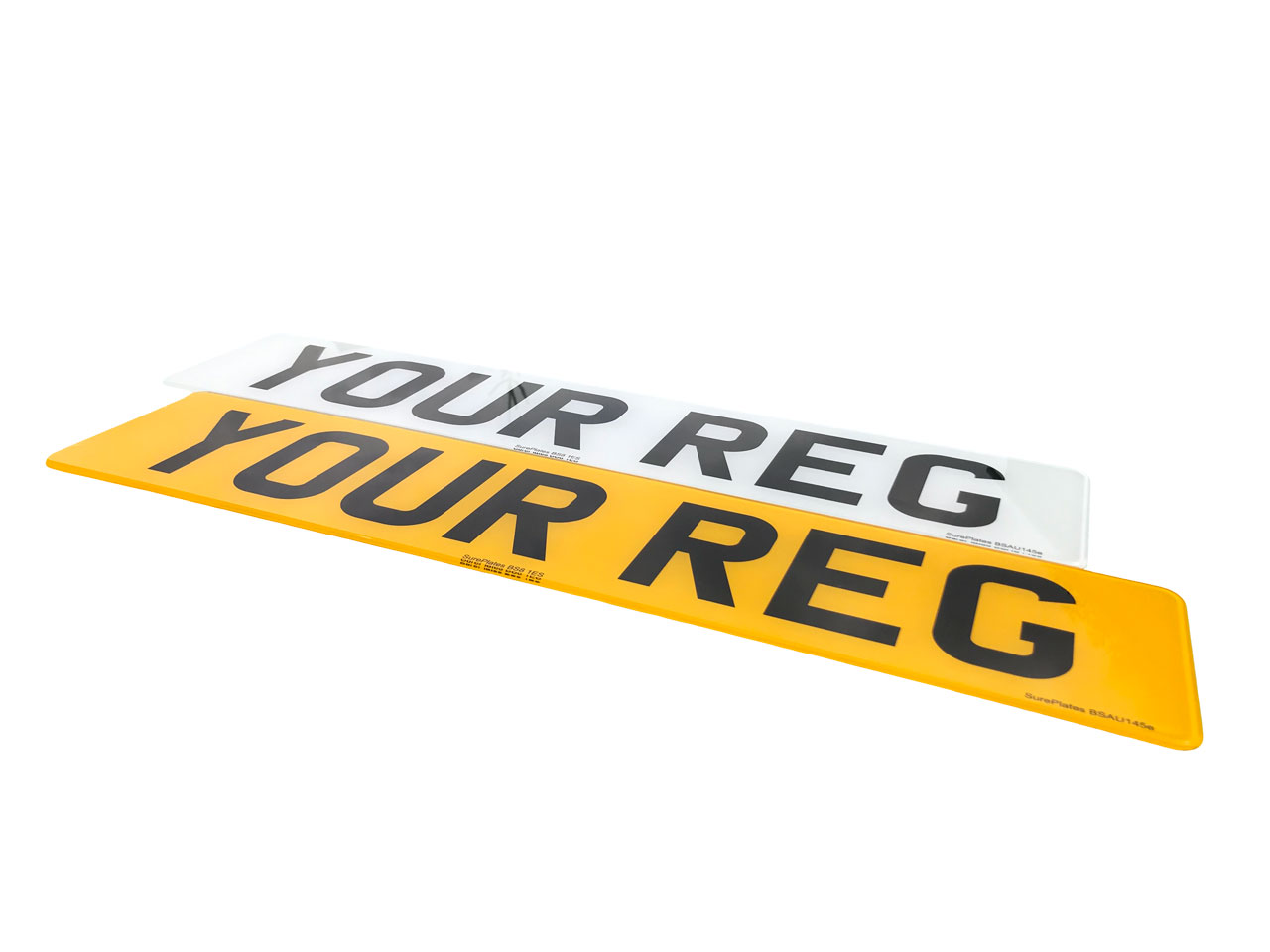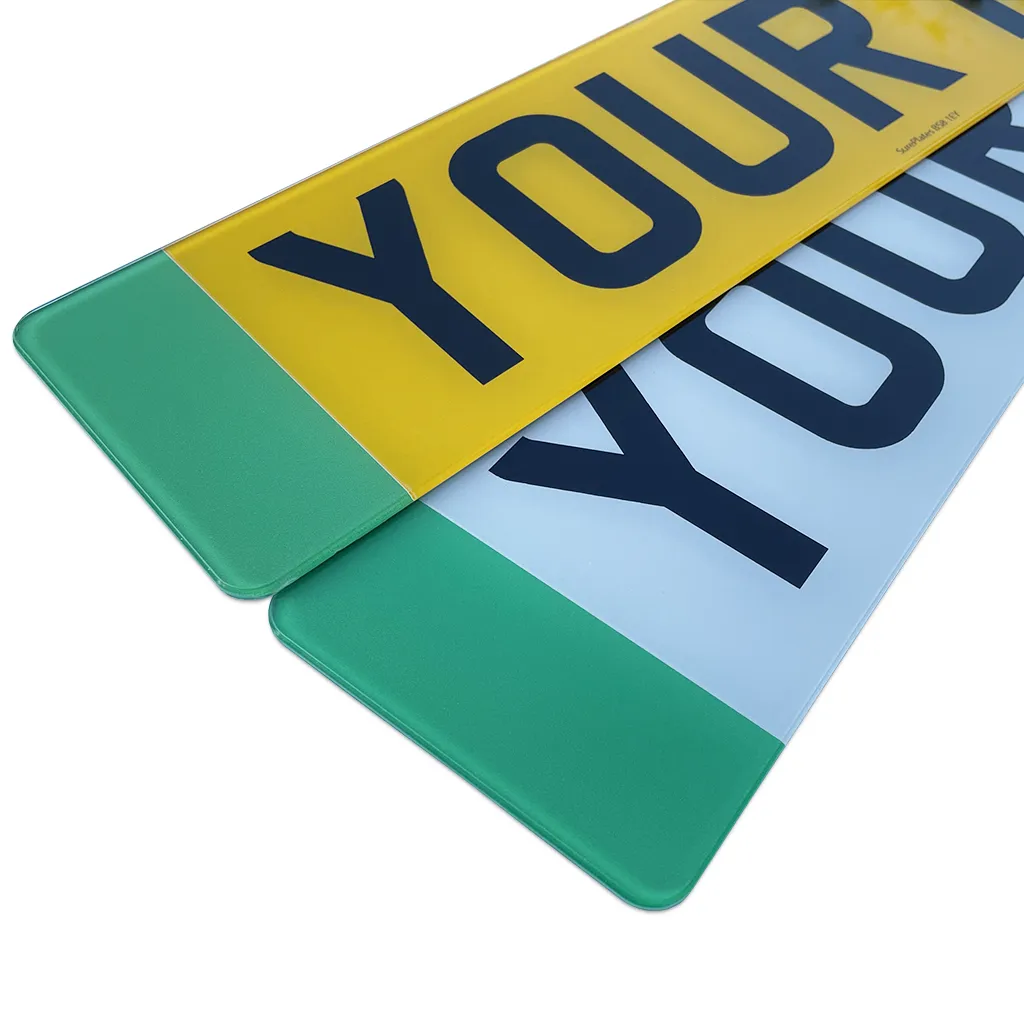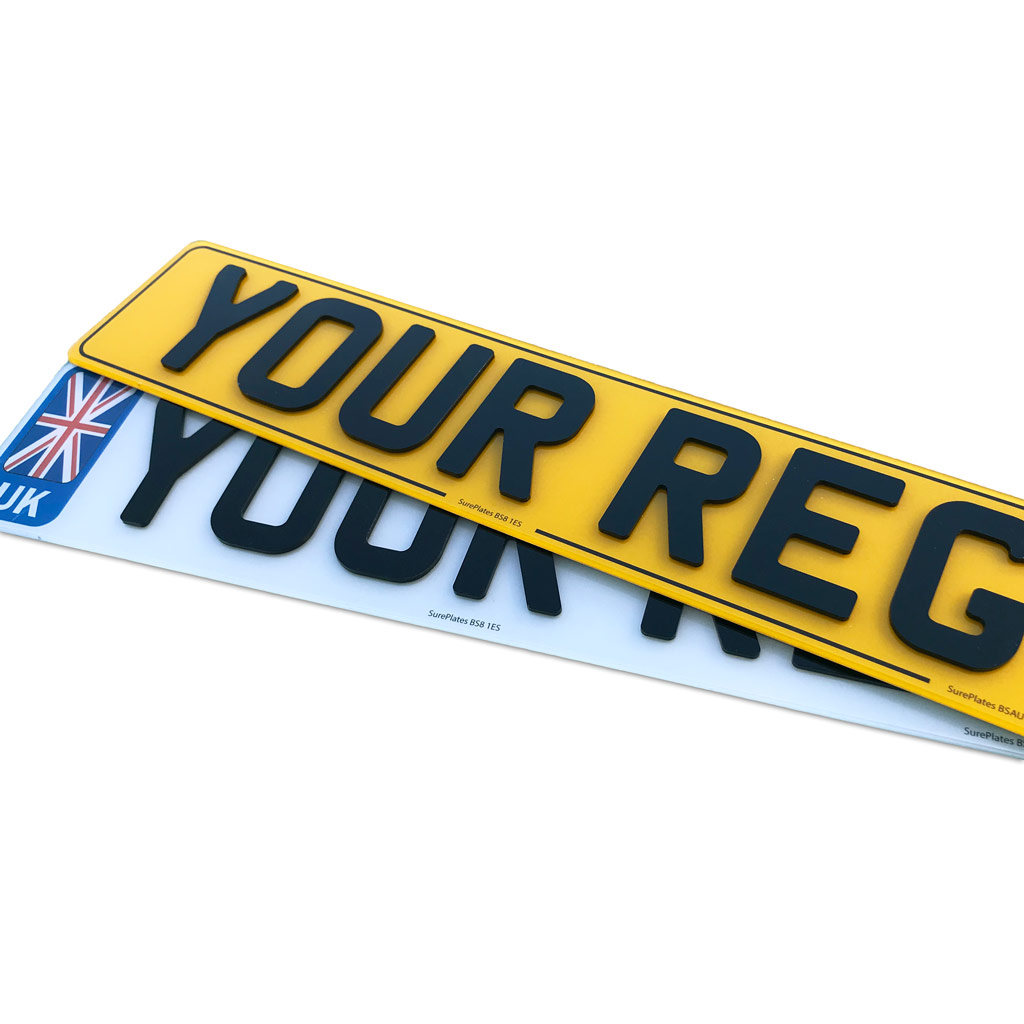Defining 4D number plates
4D plates have been around for a few years now. They started showing up in the late 2010s, but it wasn’t until 2020 and 2021, with sales boosted heavily by the ecommerce boom during the COVID-19 pandemic lockdowns, that they started showing up en masse. But what are 4D number plates? You’ve probably seen loads of them by now:
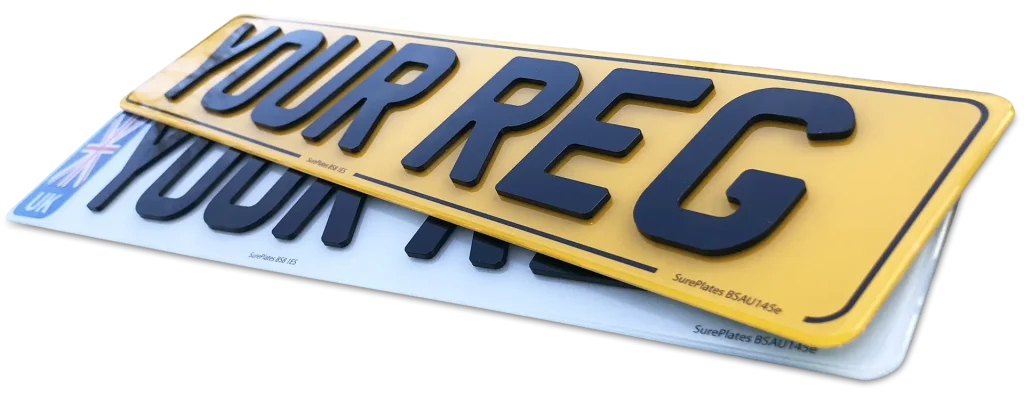
They are considered a premium variation on a number plate and are normally more expensive. The digits are laser cut from acrylic or aluminium. They are sharper, more visible, and they tend to make your vehicle “pop”. They can go on any vehicle of any age. There are no special requirements.
What is the difference between normal plates and 4D plates?
The only difference between 4D and printed plates are the characters. All the other features of a number plate are identical. Contrast the above to a standard printed plate, and the difference is apparent:
Any Registered Number Plate Supplier (RNPS) can make and sell them.
How are 4D plates made?
The standard method for making 4D number plates is to use a laser cutter to cut the digits from sheets of black acrylic. The acrylic is laminated on one side with an adhesive (and a protective release liner covering it) prior to being cut.
Aluminium can also be used, but laser cutting metal is more expensive, as is casting aluminium digits. The standard material for 4D digits is acrylic.
A special jig needs to be used to position the characters correctly on the plates. The jig ensures the characters are not only aligned correctly, but that the spacing of the letters and space between character groups is also correct. They cannot be made without a jig, as positioning each digit manually is very time consuming and error-prone.
Once a character is placed down on a plate, it cannot be removed or repositioned due to the very high strength adhesive used.
Are 4D plates the same as 3D plates?
Nope, but they’re becoming the same thing.
Years ago (long before 4D plates were a thing), you could buy printed number plates that had a 2-tone print effect. Each character had a highlight on one side giving a 3D effect. They weren’t really three-dimensional, but the effect was quite cool looking and they became quite popular. They were known as 3D number plates.
This is what they looked like:
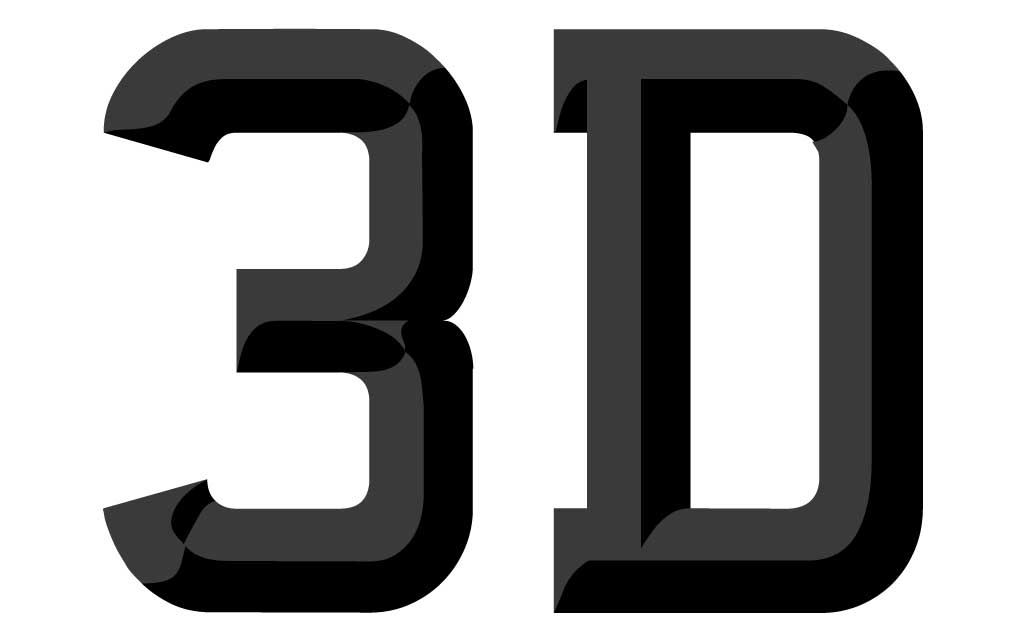
These printed effects (along with the carbon effect and the hi-line effect) are no longer road legal due to a change in the regulations on 1st September 2021. The new number plate regulations now say that all number plates must display characters using a single shade of solid black, so “3D” number plates aren’t a thing anymore.
4D plates made an appearance in the late 2010s when 3D number plates were still a thing. 3D number plates is the perfect name for what we now know as 4D plates. But because the term was already in use, the industry settled on 4D number plates. They do have an extra dimension on their predecessor, so why not?
But since there’s now a vacancy for the term 3D number plates, people are beginning to use 4D and 3D interchangeably.
Can 4D plates be used on any vehicle?
There are no restrictions on what vehicles can display 4D plates. They’re just the same as any other plate in terms of the rules and regulations, and they can be used on cars, buses, lorries, vans, trucks, trailers, caravans, or even scooters.
The only exception to this would be trade plates. Those can only be obtained directly from DVLA and are only available with red printed characters.
Only certain people and companies can have trade plates, so this restriction does not impact the majority of people.
Can I customise my 4D reg plates?
To the extent that any number plate can be customised, the simple answer is yes. Our powerful and intuitive number plate builder can create thousands of unique (and fully road legal) permutations of a number plate.
We can offer such a large number of possible unique plate styles and configurations because our plate builder offers so many options. Take a look for yourself:
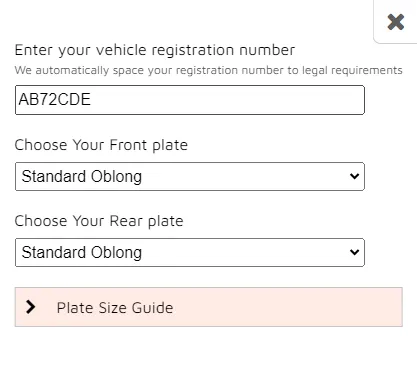
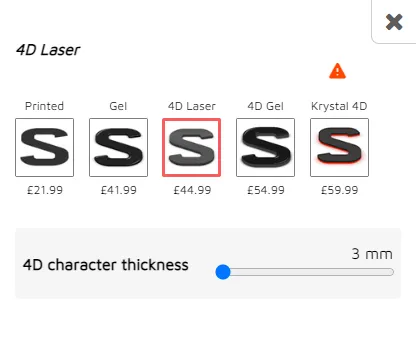
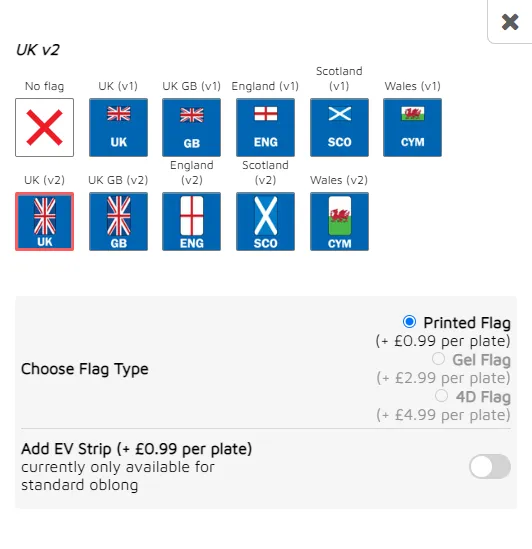
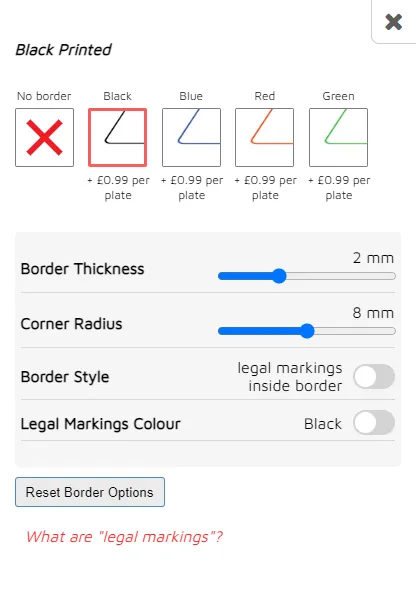
Pick from 3 plate sizes, 5 character types, 11 flag options (including no flag), an EV strip, 4 border colours, 5 thicknesses of border, 5 border corner radiuses, and the position & colour of the legal markings.
Are 4D license plates road legal?
Yes, 4D number plates are road legal! The rules say that number plates must comply with two regulatory documents:
- The Road Vehicles (Display of Registration Marks) Regulations 2001
- The British Standard for number plates (BS AU 145e)
Without going into the heavy details of the rules & regulations, 4D plates comply fully with the rules.
What other options are there?
If 4D plates aren’t quite your thing but you still want something a little different, there are several other options available.
The next premium offer is our gel number plates. They’ve been around longer than 4D, making their appearance in the early 2000s. These plates use gel digits made from polyurethane resin which are bonded to the surface of the plates the same as 4D number plates.
Gel number plates:
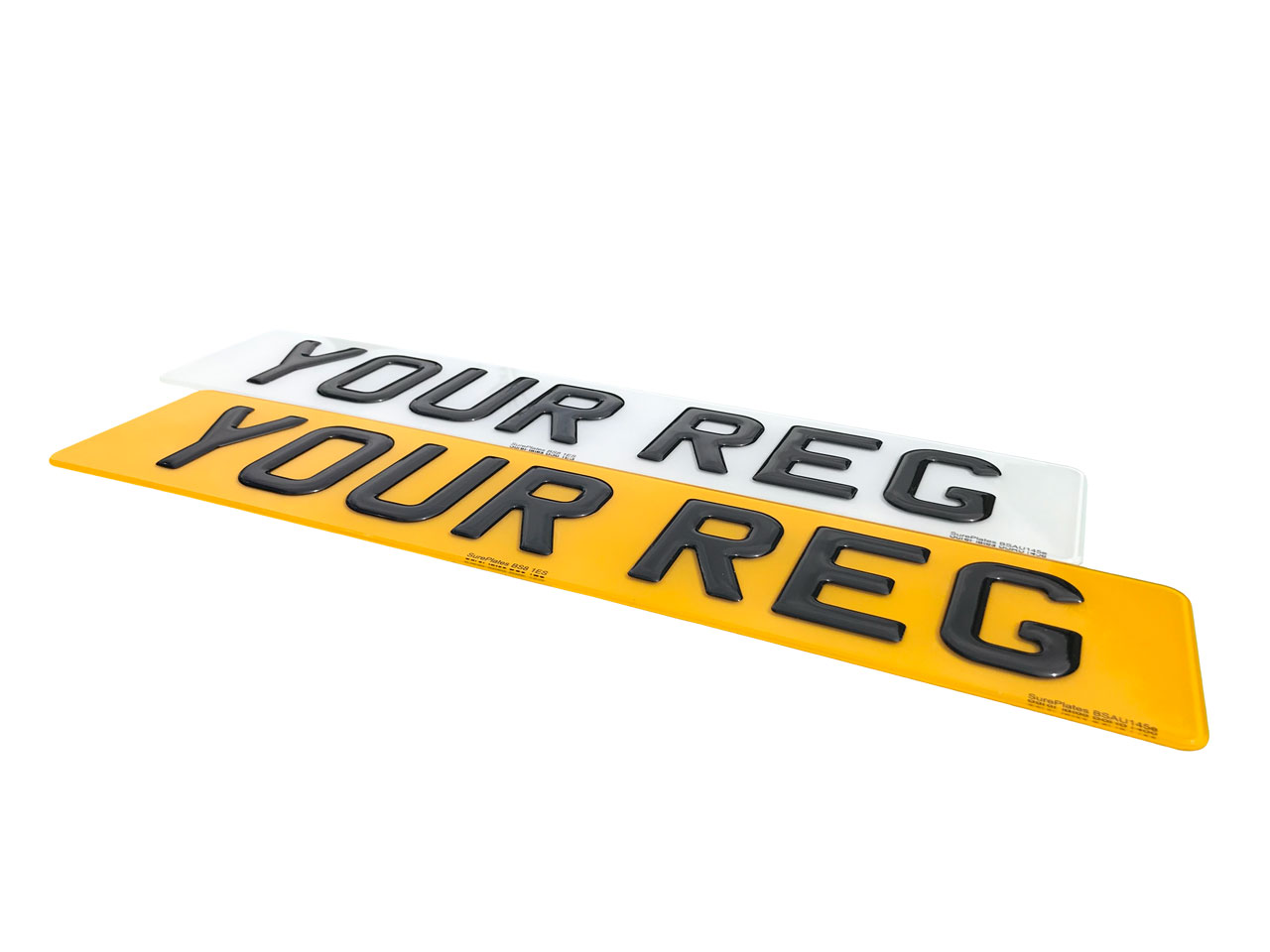
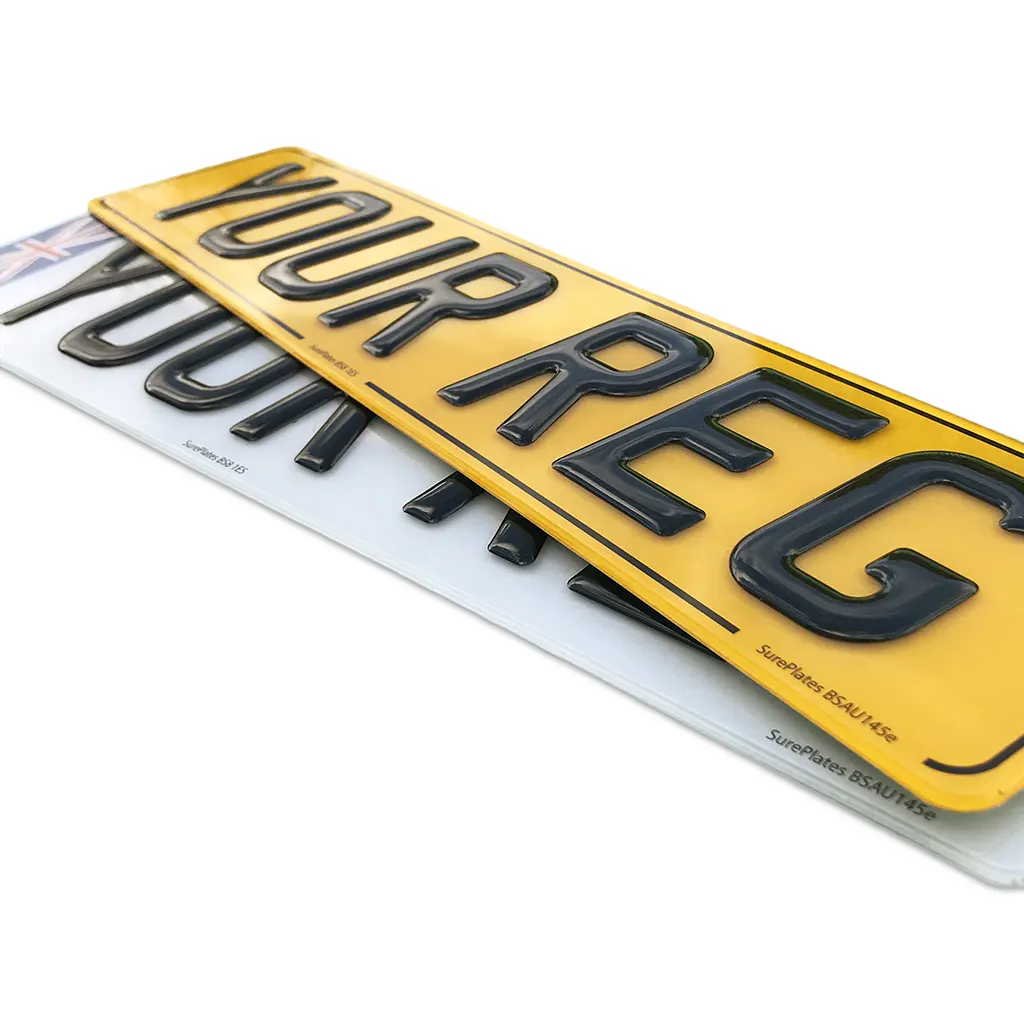
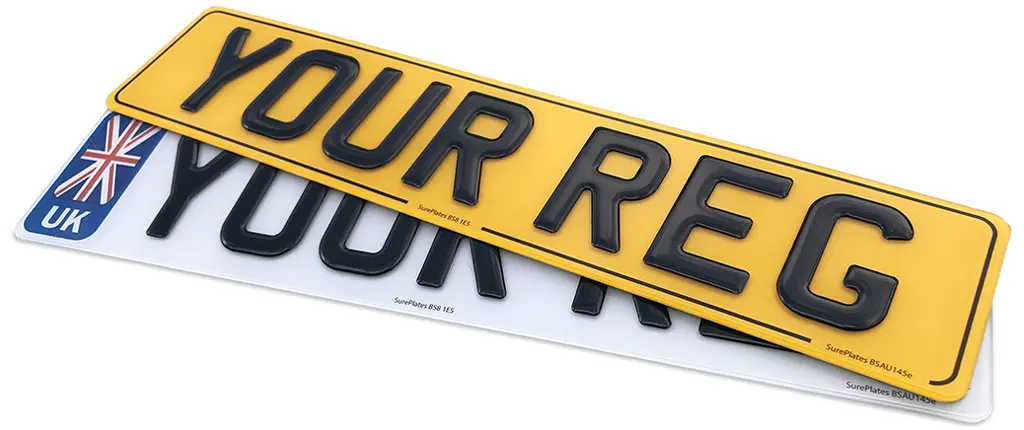
Another more premium offer is our 4D gel number plates. They are thick and shiny digits and are our most premium offer. These characters are made by combining 4D digits and gel.
4D Gel Number Plates:
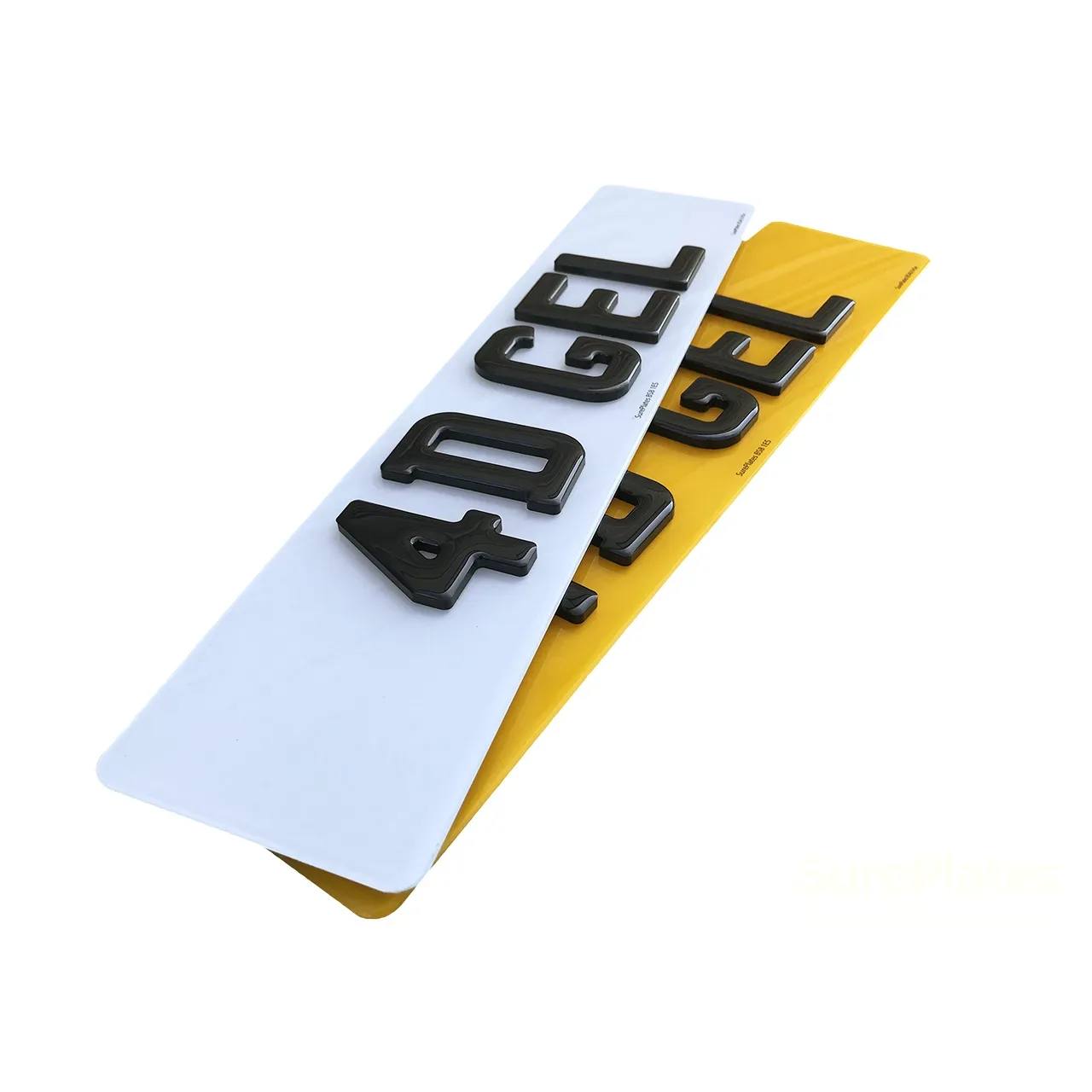
Or if you’re just in need of a new set of number plates for your vehicle, we can also provide a set of standard printed registration plates. They can be modified with borders & flags of many colours and variations.
If you have an electric vehicle, consider getting some ‘electric’ plates with the green EV strip.
Printed Number Plates:
